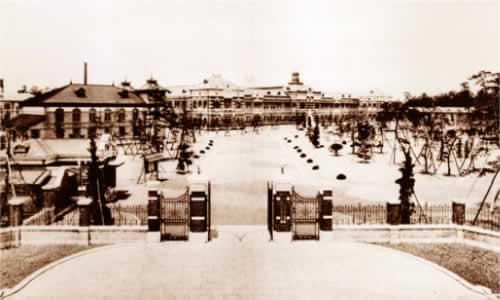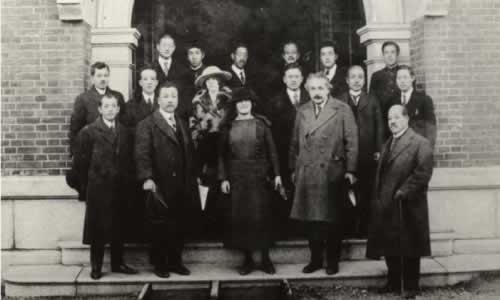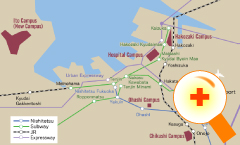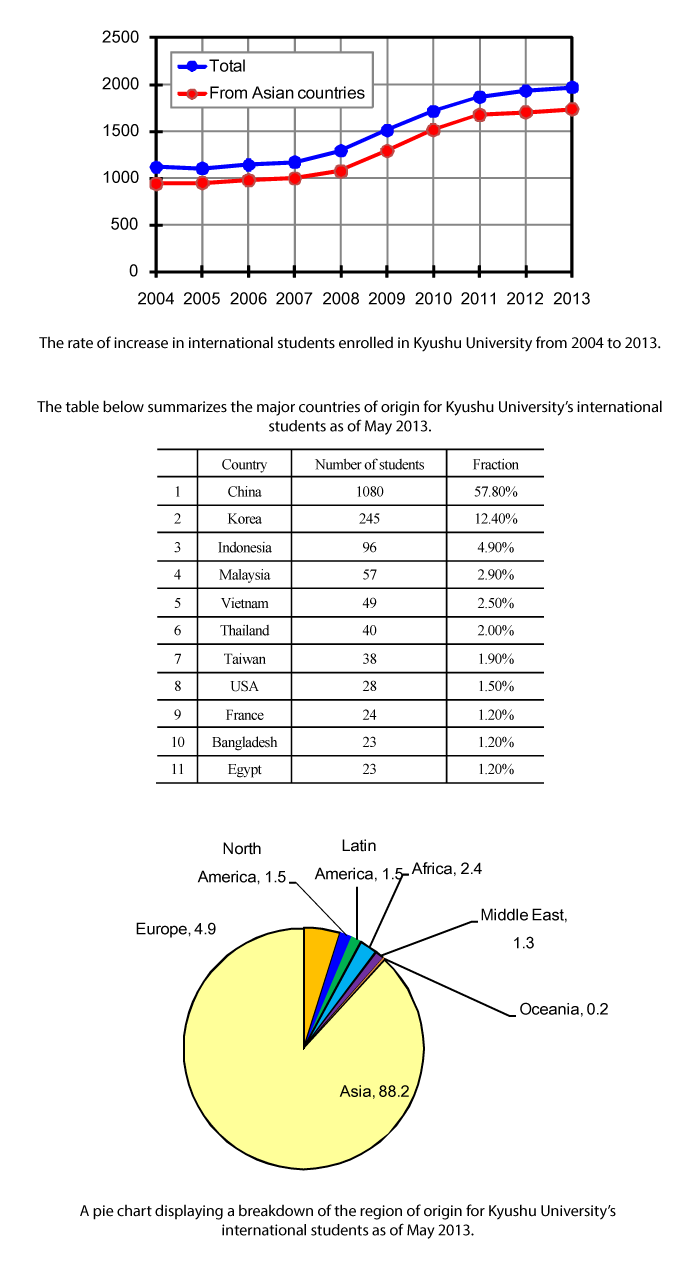A Historic University with an Academic Pedigree
Kyushu University (locally known as Kyudai) has roots way back to 1903 when it was named Fukuoka Medical College, shortly afterwards in 1911, Kyushu University was established as the forth Imperial University after the University of Tokyo, Kyoto University, and Tohoku University.
In 1922, a year after he received the Nobel Prize, Dr Albert Einstein, who was at that time a professor at the University of Berlin visited Kyushu University, thus strengthening the university’s long tradition of international academic collaboration.
Currently Kyushu University is one of Japan's top 8 research-intensive universities and is able to attract students with an excellent academic record from across Japan and overseas.
The university includes approximately 12,000 undergraduates, and 1,700 postgraduates, as well as some 2,200 faculty members and 4,000 staff.
Some noteworthy alumni include; Robert T. Huang, Ryuko Sakurai, Tetsu Nakamura, Toshiya Uchiyama, Naoyuki Kawahara and Koichi Wakata.
In 2011 Kyushu University celebrated its centenary, in those 100 years KU has produced 130,000 undergraduate students and 70,000 graduate students.

Main Gate, College of Engineering, Kyushu Imperial University (1914),
the photo is provided from Kyushu University Archives.

Einstein’s visit to Kyushu University in 1923, the photo is provided from Kyushu University Archives.




